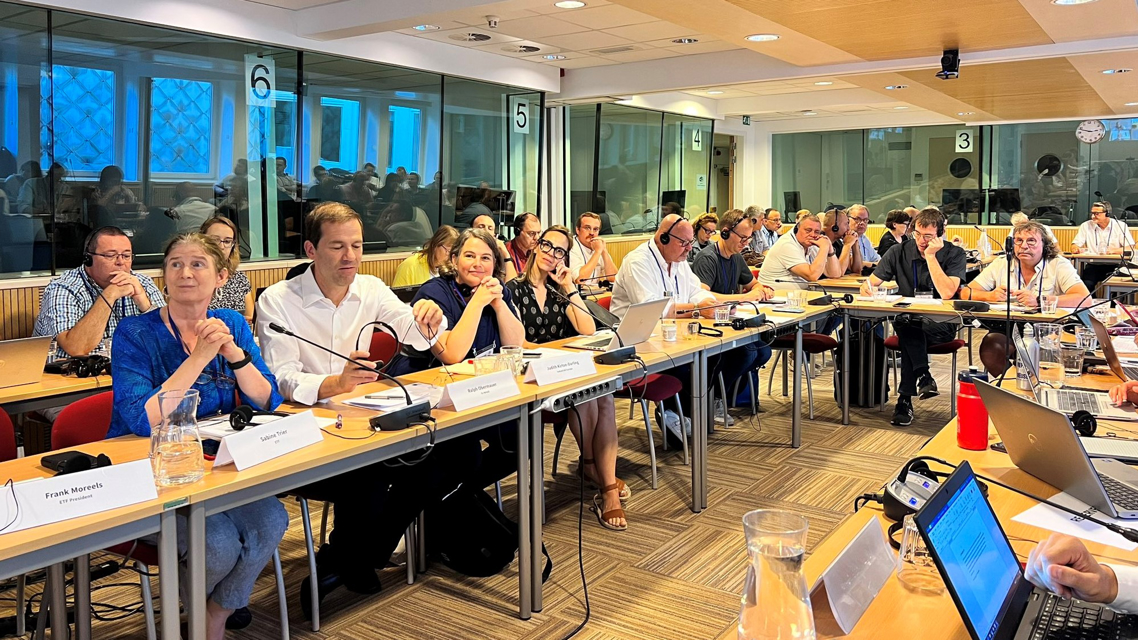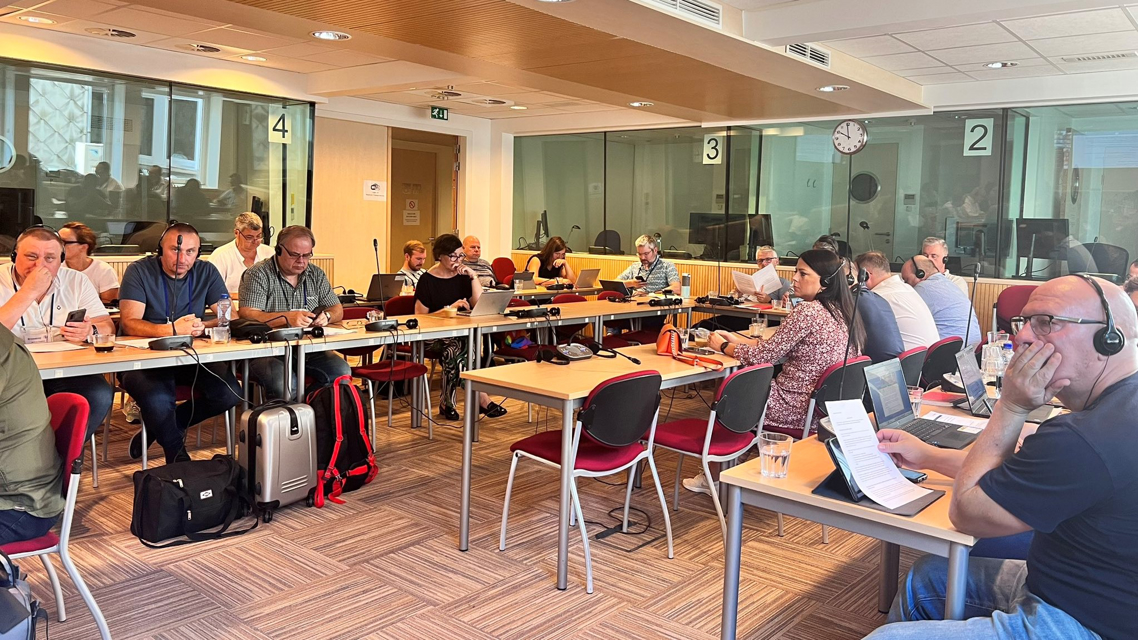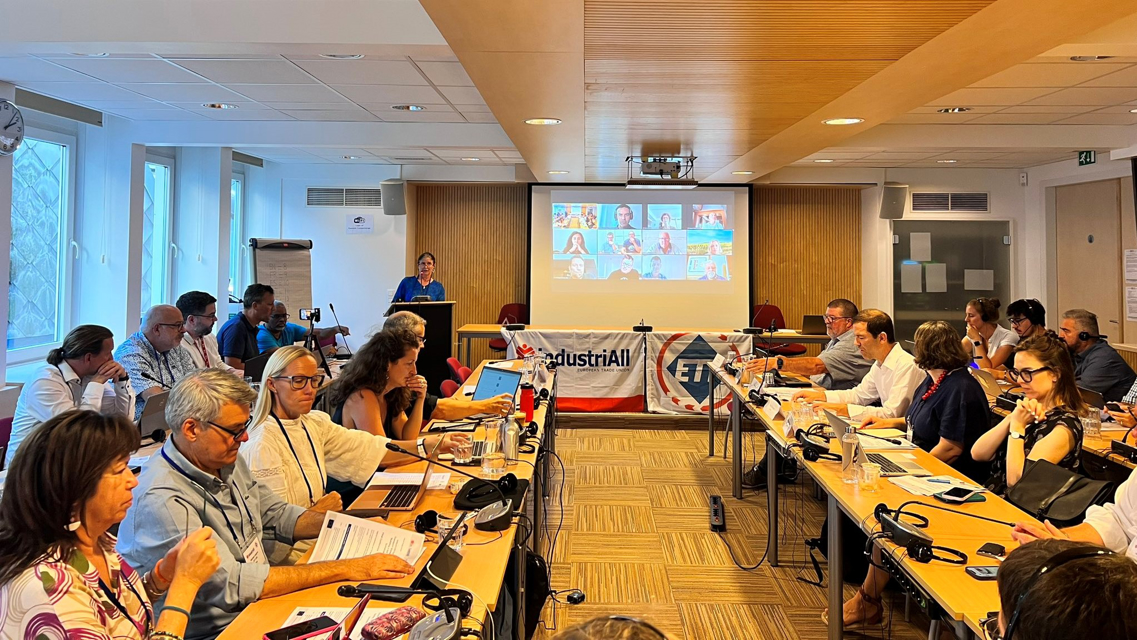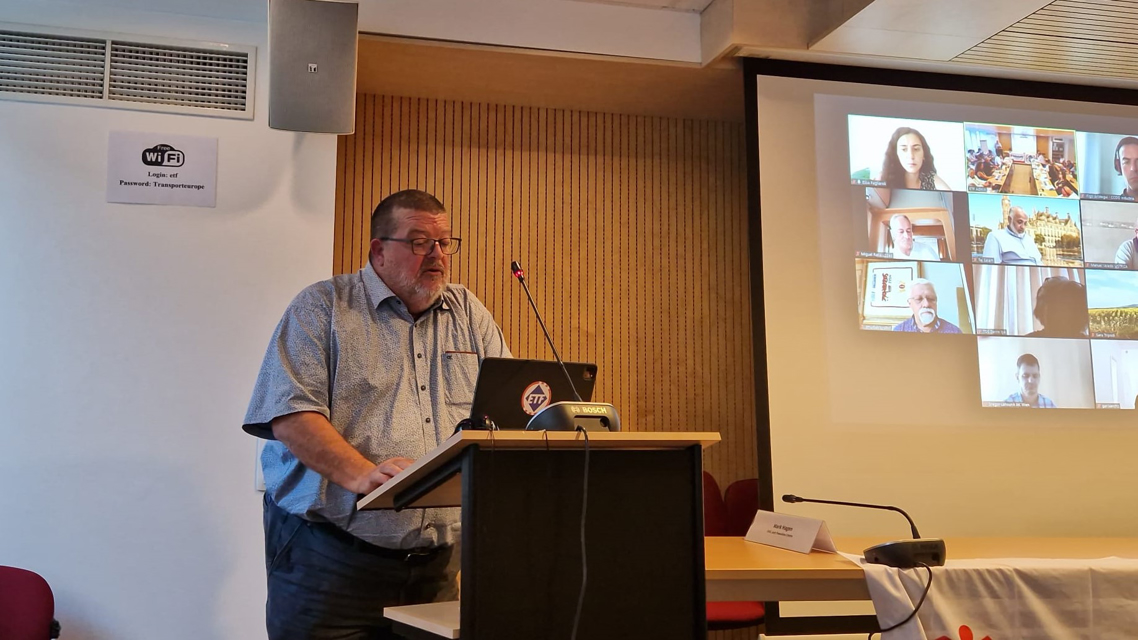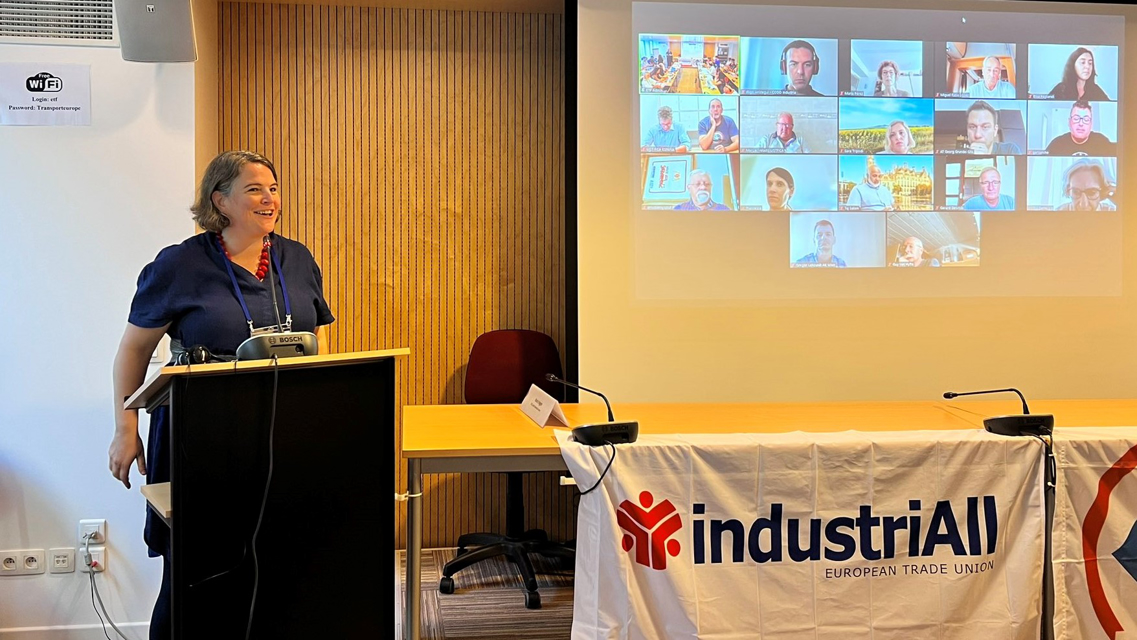it is clear that the case for a framework of rights and resources to ensure a Just Transition for workers in the transport and manufacturing industries is overwhelming and the need is urgent
The European Transport Workers' Federation (ETF) and industriAll Europe today concluded their joint project on building a Just Transition to smart and sustainable mobility.
The project, funded by the European Union, was the first major joint project between the ETF and industriAll Europe. Both organisations represent some 20 million workers in the European mobility ecosystem: transport service workers and vehicle manufacturing workers, all along the supply chain.
The European transport sector faces the huge challenge of achieving a 90% reduction in greenhouse gas emissions from transport by 2050. The project therefore looked at the social impacts of this green transition but also the digital transformation in four transport modes - rail, road, maritime and civil aviation - and the related production of transport equipment. It was supported by research from the consultancy Spin 360. In particular, the project focused on the impact of decarbonisation, expected modal shifts and emerging new transport needs on employment, skills and working conditions.
A series of 10 sectoral workshops enabled trade union representatives from the transport and transport equipment manufacturing sectors to explore challenges together, share their experiences and see the realities on the ground during site visits.
The research and findings from the workshops were presented in a final report at today's closing conference. A set of policy conclusions and recommendations is being prepared, based on the shared understanding of the challenges ahead and the tools and resources needed to manage the change.
Key findings include:
- Inclusive and sustainable mobility: ETF and industriAll Europe advocate for mobility of people to be inclusive, accessible, and affordable, and that the mobility of goods should be accessible and efficient.
- Quality infrastructure: IndustriAll Europe and the ETF emphasise the importance of quality infrastructure for efficient and safe mobility, including physical, feed/fuel, logistical, and transport device infrastructure.
- Worker involvement: ETF and industriAll Europe highlight the importance of workers in building, operating, and repairing sustainable mobility systems and call for social dialogue and involvement in decision-making to manage the transition.
Social impact assessment: IndustriAll Europe and ETF criticise the lack of proper social impact assessments for policies related to the green and digital transition. - Skills and Labour Shortage: ETF and industriAll Europe identify labour and skills shortages as a major problem affecting both transport and manufacturing sectors. Social dumping practices, sub-contracting and offshoring must also be addressed.
- Cross-sectoral collaboration: Both organisations stress the importance of a holistic approach, linking transport and industrial policies and involving workers and citizens.
Judith Kirton-Darling, Deputy General Secretary of industriAll Europe, said:
“Our extensive discussions and joint analysis undertaken over the last year have led to a greater mutual understanding of the challenges facing our sectors in the context of the twin transitions. There are common concerns and there are differences in the ways that these transitions impact our jobs, working conditions and the scale of the reskilling/upskilling/recruitment challenges.
“But collectively, it is clear that the case for a framework of rights and resources to ensure a Just Transition for workers in the transport and manufacturing industries is overwhelming and the need is urgent. We must ensure that workers are actors in their own destinies and not treated as recipients of political or corporate decisions. This is the only route to a Just Transition.”
Sabine Trier, Deputy General Secretary of ETF, said:
“In the context of pressing climate change and multiple crises affecting our transport and manufacturing workers, we stand at a pivotal moment. The climate crisis, energy challenges, and divisive politics threaten our path to a sustainable future. However, we have a clear solution in mind: a 'Just Transition' that embraces social and environmental sustainability.
“To achieve this, we call upon the European Commission to establish a dialogue with social partners for the 2040 decarbonisation goal, secure social conditionality in funding for the transport and mobility sector and workers in its new work programme, and ensure 'Just Transition' remains central in transport policy and in the 'Pathway towards a smart and sustainable mobility ecosystem.' We must also monitor national programs, fight social dumping, and invest in workforce skills. With these solutions, we bridge the gap between problems and solutions, working towards a fair and sustainable future.”
Final project report: EN
.png?width=1200&height=640&rmode=max&format=jpg&quality=100)
